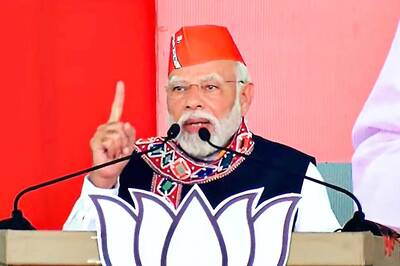
views
India’s healthcare sector has experienced remarkable growth and development in recent years. Medical advancements and increased life expectancy have raised the bar for healthcare standards in the country. However, this progress comes at a cost, and access to quality healthcare is financially burdensome. It is no longer a safety net but a necessity now.
Currently, India’s healthcare system is one of the largest in the world, with nearly 1.3 billion potential beneficiaries but with unequal access to high-quality treatment, imbalanced resource allocation, and limited physical access.
Healthcare Costs, Low Insurance Penetration and Financial Burden
According to the National Sample Survey Office (NSSO), the average per capita healthcare expenditure has been steadily increasing. In 2014, this monthly expenditure was approximately ₹3,638, but by 2019, it had surged to ₹4,863, and by the end of 2023, it is estimated to be exponentially much more.
Despite the increasing costs, insurance penetration remains significantly low. According to the Insurance Regulatory and Development Authority of India (IRDAI), the health insurance penetration rate is just 37% as of 2021.
According to WHO, 31% of urban and 47% of rural hospitalisations are financed through loans or asset sales. Furthermore, approximately 70% of Indians exhaust their income on healthcare, pushing 3.2% of the public below the poverty line due to excessive medical bills.
In India, out-of-pocket health expenditure (OOP) is the world’s highest, accounting for about 50.6% of the total health burden in 2020.
The Role of Health Insurance
Health insurance plays an essential role in mitigating financial risks by providing protection against the high costs of medical care.
Here’s how it accomplishes this:
Cost-Sharing Mechanism: Health insurance typically involves a premium that policyholders pay regularly. In return, the insurance company helps cover a portion of the medical expenses This ensures that individuals do not have to bear the entire financial burden.
Coverage for High Medical Expenses: Health insurance plans often cover a range of medical services, including hospitalisation, surgeries, prescription drugs, and preventive care. It can significantly reduce the out-of-pocket expenses that individuals would otherwise have to pay.
Financial Security: Cashless hospitalisation creates a safety buffer for unforeseen medical emergencies and enhances overall convenience plus tax benefits.
Growth of the Health Insurance Market and Government Initiatives
The consistently growing emphasis on holistic living, specifically after the COVID-19 pandemic, has increased awareness and preference for acquiring appropriate health insurance.
Acknowledging this, the Indian government has introduced the Pradhan Mantri Jan Arogya Yojana (PM-JAY), also known as Ayushman Bharat, which offers annual financial protection of up to INR 5 lakh per family for comprehensive healthcare and target economically vulnerable sections of the population. Under this scheme, the beneficiaries can avail of cashless healthcare services, further incentivising the adoption of insurance.
The insurance sector in India is evolving swiftly and has responded to the changing needs of the population by offering a wide range of products catering to various demographics, including individual policies, family floater plans, senior citizen policies, and critical illness covers. This diversity allows consumers to choose their specific requirements with easy instalment payment options.
A healthy India begins with secure healthcare, and that security comes through health insurance. With the rising incidence of lifestyle diseases and high expenditure, insurance provides financial protection and access to quality medical care.
-The author is co-founder and CEO, HexaHealth. Views expressed are personal.



















Comments
0 comment